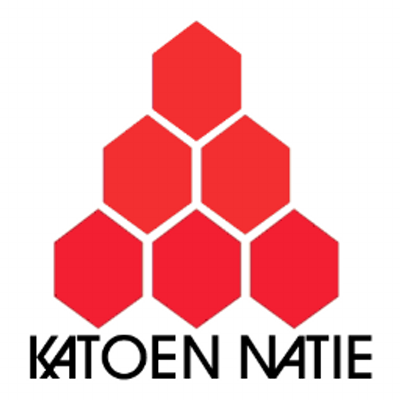LAN (Local Area Network) - Design, Construction and Configuration
Home » Architecture of IT systems » LAN networks
The Local Area Network (LAN) is the primary work environment for users in business applications. In the area of one location, it should ensure efficient and uninterrupted access of workstations, terminals and other devices to network resources and services, as well as enable efficient communication within the datacenter. The local network must be efficient and scalable, resistant to failures, and ensure protection of data sent by it against unauthorized access.
LAN network design
The local network must first of all meet the functional requirements resulting from the needs of business users, such as the use of specific applications, voice and image transmission, file transfer, and database operation.
The designer's task is also to ensure the required level of network availability and integrity while taking into account budget constraints. In general, the reliability requirements result from the analysis of the impact of individual elements of the IT system on the implementation of business processes in the enterprise (BIA - Business Impact Analisys) and the comparison of the implementation costs with the business costs of a possible failure. In principle, BIA should be applied to all elements of an enterprise's IT system. The local network should be resistant to both passive threats, e.g. flood, fire, equipment failure and active threats, i.e. those resulting from conscious human action aimed at destroying or causing failure, e.g. terrorism, viruses and attacks.
Professional construction of LAN networks within the datacenter
Building a LAN within a datacenter is a separate area. We implement a hierarchical infrastructure based on top-of-the-rack and end-of-the-row switches aggregating both network and mass memory traffic. Thanks to this, our clients obtain a simple, reliable and efficient structure that integrates the IP, FCIP (Fiber Channel over IP) and FCoE (Fiber Channel over Ethernet) protocols. Since the vast majority of enterprises have a large number of virtualized servers, LAN networks also migrate to the virtual layer. Examples of such solutions are mature designs of virtual switches such as Cisco Nexus or the recently available vmware NSX solutions.
Our installations use various technologies available in individual network layers: copper and fiber optic cabling, Ethernet standards, IP family protocols and all higher layers of the OSI model. Our networks include second and third layer switches, routers, firewalls operating simultaneously on several network layers (Next Generation Firewall) and IDS / IPS probes. Thanks to this, we are able to build efficient, fault-resistant and safe networks. Each time our projects are tailored to the individual needs of customers - business, functional and financial.
Local LAN in the company
Network technologies are one of the fastest growing IT area. This is due to the growing demands of users and business. New challenges for IT services are constantly emerging: cloud solutions, big-data, virtualization, protocol tunneling (e.g. FC over IP), data compression and encryption (e.g. end-to-end encryption) and many others. We are able to guide our clients through the meanders of complicated choices and help them choose optimal solutions.
Our references

Krispol Sp. z o. o

Bridgestone Poznan Sp. z o. o

Luvena SA

The Lorenz Bahlsen Snack-World Sp. z o. o

Katoen Natie Logistics

Nijhof-Wassink Groep
UpGreat LAN Networks - Frequently Asked Questions
What are the stages of building a LAN?
The process of building a LAN network includes several key stages: planning, design, installation, and testing and configuration. First, our specialists prepare a plan that takes into account the client's needs and the specifics of the infrastructure. Then we start the design and selection of appropriate devices, and after installation, we test the network to make sure it works as expected.
What makes your company's LAN design unique?
Our LAN design is distinguished by a detailed approach to requirements analysis and optimization for future expansions. We use modern tools and technologies that allow for precise infrastructure planning and scalability. Each project is individually tailored to the client's needs, which ensures stability and efficiency of operation.
Do you offer support after LAN installation is complete?
Yes, our company provides technical support after the installation is complete. We can help with troubleshooting, updates and provide regular technical inspections. Thanks to this, our customers can be sure that their LAN is constantly monitored and protected from possible failures.
What factors influence the price list for LAN installation?
The cost of installing a LAN network is influenced by many factors, such as the size of the network, the type and number of devices, the complexity of the installation, and additional requirements for security and network management. Each quote is prepared individually to reflect the real needs and budget of the client.
What are the benefits of professional LAN construction for a company?
Professional LAN construction guarantees reliability, security and efficiency of the network infrastructure. Thanks to this, the company can better manage data flow, increase productivity and ensure secure internal connections. A properly designed and constructed LAN is also easier to manage and more resistant to failures.
Contact details
UpGreat Systemy Komputerowe Sp. z o. o
NIP: 779-20-28-330
REGON: 631261350
KRS: KRS0000179607
District Court Poznań - Nowe Miasto and Wilda in Poznań, VIII Commercial Division of the National Court Register
Share capital: 339 thousand zlotys
- +48 61 664 16 20
- biuro@upgreat.com.pl
- +48 61 664 16 21
- Mon - Fri from 8:30 am to 4:30 pm
- ul. Ostrobramska 22, Poznań